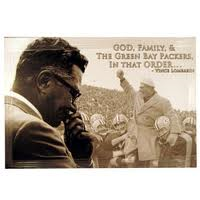As I work on putting the final “Ordinary Time” chapter of my book A Year of Faith and Philosophy into shape for submission to my editor, I have been constantly reminded of surprising things about Jesus that many Christians either don’t know or choose to ignore. Here’s an essay from a decade ago about Jesus and family values . . . enjoy!
I was angry with my father for a lot of reasons over the years, some justified and some not. But I don’t recall any time when I was more pissed at him than when I heard him say on one of his cassette-taped “fireside chats” aimed at his followers and groupies that “a person’s real family is almost never his blood family.” Thanks a lot, Dad—signed, “One of your blood family.” I heard this a few short months after my mother died many years too early of cancer and my father had remarried in record-breaking time. “Of course you feel nothing but positive familial vibes from your groupies,” I thought. “They’ve never experienced your self-centeredness, your moods, your superiority complex or had to put up with your annoying quirks as your blood family has.” To call a bunch of people who are nothing but cheerleaders for everything you say and do a “family” distorts the meaning of the word beyond recognition.
I have learned a number of things over the years, including that the majority of my problems with my father were mirrors of my own unaddressed problems. Strangely enough, I have also discovered that Dad may not have been as wrong about family dynamics as I thought. Taking a close look at what the source (Jesus) said in the Gospels about the possibility of following God and being a good family person is enough to give one pause about a lot of things, including the very familiar “family values” that are trumpeted by political and religious folks from all sorts of angles at the drop of a hat.
Stereotypically, “family values” are conservative values, focusing on respect for authority, hard work, independence, patriotism, faith and so on; often they are largely synonymous with traditional values, which tend to include social positions such as anti-abortion, anti-same sex marriage and lurking suspicions about homosexuality in general. But during every political cycle liberal and progressive voices are heard crying out that true family values are about concern for others, lifting the downtrodden and speaking truth to power. And the never-ending war over who truly defines and owns family values rages on. My own moral compass strongly aligns with the progressive perspective, but in this case it is a mistake for either conservatives or progresssives (or any in the middle) to stake a Jesus claim on family values. Because it is pretty clear from the Gospel stories that Jesus himself didn’t give a damn about family values or families at all.
In the Forward to his wonderful short book What Jesus Meant, Garry Wills provides an illuminating reflection on the What Would Jesus Do? (WWJD?) meme that has for many years served a host of Christians as their “go to” touchstone for how to live a Christian life. One can find WWJD? coffee cups, posters, key chains, bumper stickers, tee shirts—the idea has been viral for a long time. Wills asks, do we really want to do what Jesus did? For example:
For example:
- Should a person say to his or her mother “Woman, what have I to do with you?” when she asks for a favor?
- Should we encourage twelve-year-olds to speak to their parents rudely and dismissively as Jesus did to Mary and Joseph during the Temple episode?
- Should we tell a person mourning the recent death of his or her father to “Let the dead bury their dead” in order to pursue more lofty goals (such as following us)?
- Should we tell people that hating their parents, siblings, and children is a prerequisite for seeking after God?
Jesus’ brothers neither understood nor understood his mission (it’s not always clear that Jesus fully understood it himself); when residents of Nazareth started saying that Jesus had lost his mind, his family pursued the first century equivalent of having him committed, or at least planning a family intervention. Those who did follow Jesus during his itinerant ministry left their homes, their spouses, their children and their jobs behind as they were sucked into this strange man’s disruptive wake.
In other words, if one is concerned about family values, WWJD? is useful only as a guide for what one should not do. All attempts to root one’s own moral code, regardless its content, in the example of Jesus from the Gospel stories are little more than thinly veiled attempts to create Jesus in one’s own image. For every Gospel text congruent with our understanding of family values (and there are many such texts), there is a text in which Jesus promises that following him and seeking God is guaranteed to turn one’s world upside down and to violate almost every traditional moral expectation and norm.
Everyone is aware of families torn apart and destroyed when one of the family members sets out on a mission to “accomplish God’s work.”  This is not hard to explain, given the above—the stories of Jesus give ample justification for ignoring one’s family obligations and connections if they conflict with the perceived will of God for one’s life. So what’s the takeaway here? The legendary football coach Vince Lombardi used to tell his Green Bay Packers players that their priorities were to be “God, Family, and the Green Bay Packers”—although his players report that frequently he clearly changed the order. Is God a cosmic Vince Lombardi insisting upon being at the pinnacle of a rigid hierarchy, to the detriment of anything else, no matter how important, that might conflict?
This is not hard to explain, given the above—the stories of Jesus give ample justification for ignoring one’s family obligations and connections if they conflict with the perceived will of God for one’s life. So what’s the takeaway here? The legendary football coach Vince Lombardi used to tell his Green Bay Packers players that their priorities were to be “God, Family, and the Green Bay Packers”—although his players report that frequently he clearly changed the order. Is God a cosmic Vince Lombardi insisting upon being at the pinnacle of a rigid hierarchy, to the detriment of anything else, no matter how important, that might conflict?
That does indeed appear to be the case, assuming that the game of hierarchical “Who’s on top?’ is what the divine has in mind. But what if that isn’t the point at all? What if Jesus’ consistently violating our values and expectations is a call to consider something more radical than our limited imaginations can accommodate? If, rather than residing at “the top of the heap,” God is everything and everything is in God, then the lay of the land is no longer a landscape of “either/or.” The answer to the question “which is more important, God or family?” is “yes.” Jesus’ provocative statements concerning the family are intended to demonstrate that when we include God as just another object of important things that need to be placed in proper order we are misconstruing God entirely.
If everything is in God, then God is not ultimately in conflict with anything. If God and family appear to be in conflict, then faith tells me that somewhere, at some level, God and family are in unity regardless of appearances. If I have to regularly choose between paying attention to God and to my job, then my faith-energized assignment is to learn how to find God in my job (since my job is in God, as is everything else). Attempts to fit the life of faith into familiar categories, even if we are willing to significantly adjust those categories, miss the boat. The energy of the Christian life is captured well by the Apostle Paul: I will show you a more excellent way.













